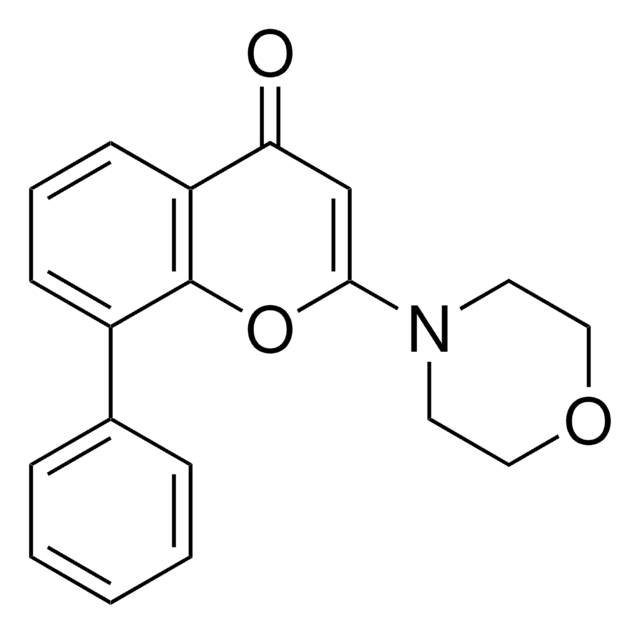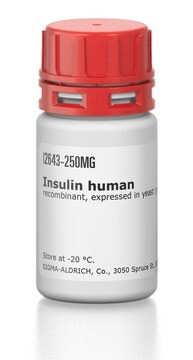5.32384
PI3K Inhibitor, HS-173
Synonym(s):
PI3K Inhibitor, HS-173, PI3Kα Inhibitor, Phosphatidylinositol 3-kinase α Inhibitor
About This Item
Recommended Products
Assay
≥96% (HPLC)
Quality Level
form
powder
potency
800 pM IC50
manufacturer/tradename
Calbiochem®
storage condition
OK to freeze
protect from light
color
light beige
solubility
DMSO: 50 mg/mL
storage temp.
−20°C
InChI
1S/C21H18N4O4S/c1-2-29-21(26)19-13-23-20-9-8-15(14-25(19)20)16-10-17(12-22-11-16)24-30(27,28)18-6-4-3-5-7-18/h3-14,24H,2H2,1H3
InChI key
SEKOTFCHZNXZMM-UHFFFAOYSA-N
General description
Please note that the molecular weight for this compound is batch-specific due to variable water content.
Biochem/physiol Actions
PI3Ka
Warning
Reconstitution
Other Notes
Lee, H., et al. 2013. Onc. Rep.30, 863.
Kim, O., et al. 2011. J. Med. Chem.54, 2455.
Legal Information
Storage Class Code
11 - Combustible Solids
WGK
WGK 3
Flash Point(F)
Not applicable
Flash Point(C)
Not applicable
Certificates of Analysis (COA)
Search for Certificates of Analysis (COA) by entering the products Lot/Batch Number. Lot and Batch Numbers can be found on a product’s label following the words ‘Lot’ or ‘Batch’.
Already Own This Product?
Find documentation for the products that you have recently purchased in the Document Library.
Our team of scientists has experience in all areas of research including Life Science, Material Science, Chemical Synthesis, Chromatography, Analytical and many others.
Contact Technical Service





